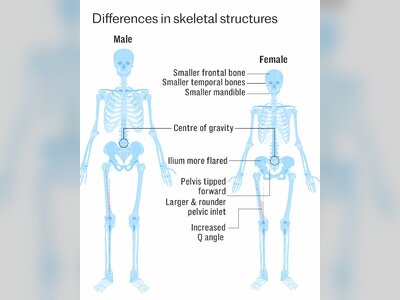Revolutionizing Emotion-Sensing Technology and Cosmic Missions
Tokyo researchers innovate in emotion detection as space missions heat up with global collaborations and cosmic events.
In a groundbreaking development from Tokyo Metropolitan University, researchers have unlocked a new frontier in technology, discovering that the electrical properties of human skin change with emotion.
This finding, detectable just seconds after an emotional stimulus, could dramatically alter our interaction with technology by empowering devices to sense emotions without visual cues.
This advancement highlights a future where emotional AI could seamlessly integrate into our daily lives.
In space-related news, Earth has recently bid farewell to its temporary cosmic companion, 'mini-moon' 2024 PT5.
Having accompanied our planet for two months, the celestial body has resumed its orbit around the Sun, reminding us of the dynamic celestial mechanics at play in our solar system.
Turning our attention to Mars, a lively debate unfolds between tech entrepreneur Elon Musk and astrophysicist Neil deGrasse Tyson on the feasibility of Martian colonization.
Musk advocates for Mars as a crucial step for human survival, while Tyson raises important challenges to this interplanetary vision.
Closer to home, the UAE's Mohammed Bin Rashid Space Centre announced that Obaid Al Suwaidi has been chosen for a mission with NASA's Human Exploration Research program, reflecting the country's ambitions in space exploration.
Skywatchers in Dubai can anticipate the Hunter Supermoon on October 17 and a meteor shower on the 19th, with the Dubai Astronomy Group organizing special events to celebrate these celestial phenomena.
Further showcasing the UAE's astronomical progress, the Mohammed Bin Rashid Explorer is slated for launch to the Asteroid Belt aboard a Japanese rocket.
In addition, UAE's first Synthetic Aperture Radar satellite, launched by Bayanat and Yahsat, promises to enhance Earth observation capabilities.
In another astronomical showcase, NASA's James Webb Telescope has unveiled stunning images of two merging galaxies, offering breathtaking insights into cosmic processes.
In medical science, camels could play a pivotal role in combatting diseases like cancer and Alzheimer's.
Researchers have identified nanobodies, compact antibodies derived from camels, as potential 'superweapons' in medical treatment, highlighting the diverse applications of this discovery.
Stay tuned as these discoveries and missions unfold, marking an era of innovation across technology, space exploration, and medical science.
This finding, detectable just seconds after an emotional stimulus, could dramatically alter our interaction with technology by empowering devices to sense emotions without visual cues.
This advancement highlights a future where emotional AI could seamlessly integrate into our daily lives.
In space-related news, Earth has recently bid farewell to its temporary cosmic companion, 'mini-moon' 2024 PT5.
Having accompanied our planet for two months, the celestial body has resumed its orbit around the Sun, reminding us of the dynamic celestial mechanics at play in our solar system.
Turning our attention to Mars, a lively debate unfolds between tech entrepreneur Elon Musk and astrophysicist Neil deGrasse Tyson on the feasibility of Martian colonization.
Musk advocates for Mars as a crucial step for human survival, while Tyson raises important challenges to this interplanetary vision.
Closer to home, the UAE's Mohammed Bin Rashid Space Centre announced that Obaid Al Suwaidi has been chosen for a mission with NASA's Human Exploration Research program, reflecting the country's ambitions in space exploration.
Skywatchers in Dubai can anticipate the Hunter Supermoon on October 17 and a meteor shower on the 19th, with the Dubai Astronomy Group organizing special events to celebrate these celestial phenomena.
Further showcasing the UAE's astronomical progress, the Mohammed Bin Rashid Explorer is slated for launch to the Asteroid Belt aboard a Japanese rocket.
In addition, UAE's first Synthetic Aperture Radar satellite, launched by Bayanat and Yahsat, promises to enhance Earth observation capabilities.
In another astronomical showcase, NASA's James Webb Telescope has unveiled stunning images of two merging galaxies, offering breathtaking insights into cosmic processes.
In medical science, camels could play a pivotal role in combatting diseases like cancer and Alzheimer's.
Researchers have identified nanobodies, compact antibodies derived from camels, as potential 'superweapons' in medical treatment, highlighting the diverse applications of this discovery.
Stay tuned as these discoveries and missions unfold, marking an era of innovation across technology, space exploration, and medical science.











